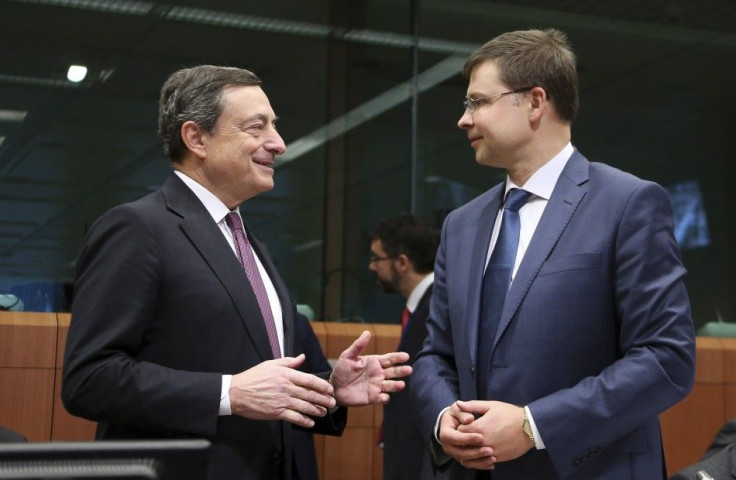European Commission unveils ‘single capital market’ plan; Seeks increase in non-bank lending for businesses as in the US

The European Union has unveiled a slew of measures to encourage non-bank lending across Europe to reboot the slumping investment that has been hurting its economic growth.
Unveiled by EU Commission’s financial services chief Jonathan Hill, the program known as "Capital Markets Union" aims to mitigate the current inadequacy in business lending by seeking to increase the share of non-banking sector in terms of stocks and bonds.
Unlike the U.S., the share of non-banking finance for business lending in Europe is just 30 percent. In the U.S., 70 percent of the business lending and investment comes from non-banking sources.
Benefit for SMEs and Infra
The EU Financial Commissioner expressed the hope that a harmonised capital markets union will add more stability to the financial system and take out the pressure from banks and spread risk-sharing. It will also help in attracting more investment from inside and outside the EU and the main beneficiaries will be SME sector and infrastructure projects, he pointed out.
“I want the Capital Markets Union to help European businesses... have a wider range of funding sources," said Jonathan Hill. He added that the goal is to knock down barriers to ensure easy flow of capital across the 28 states in the bloc, the AFP reported.
At the core of the new program is a framework for reviving asset backed security market, which took a beating in the aftermath of the global financial crisis in 2008. This entails banks repackaging loans to individuals and small businesses, including car loans and mortgages, in the form of financial instruments that can be sold to major investors.
Under the new initiative, member states have to abide by a common set of rules on credit rating, solvency and transparency. That will allow small or medium sized business to borrow from the equity markets aided by appropriate rules.
Biggest since euro
Though the European economy is roughly of the same size as America’s, the U.S. capital markets are giants compared to their EU counterparts. For example, the U.S. venture capital market is five times bigger than Europe’s and U.S. equity markets are double the size of EU peers in the matter of capitalization.
Analysts see, the new initiative on capital markets as arguably the most ambitious financial project since the birth of the euro. By seeking to create a pan single capital market across 28 states, EU is also aiming to challenge the supremacy of U.S. as a centre for investment, the Politico reported.
For feedback/comments, contact the writer at feedback@ibtimes.com.au or let us know what you think below.






